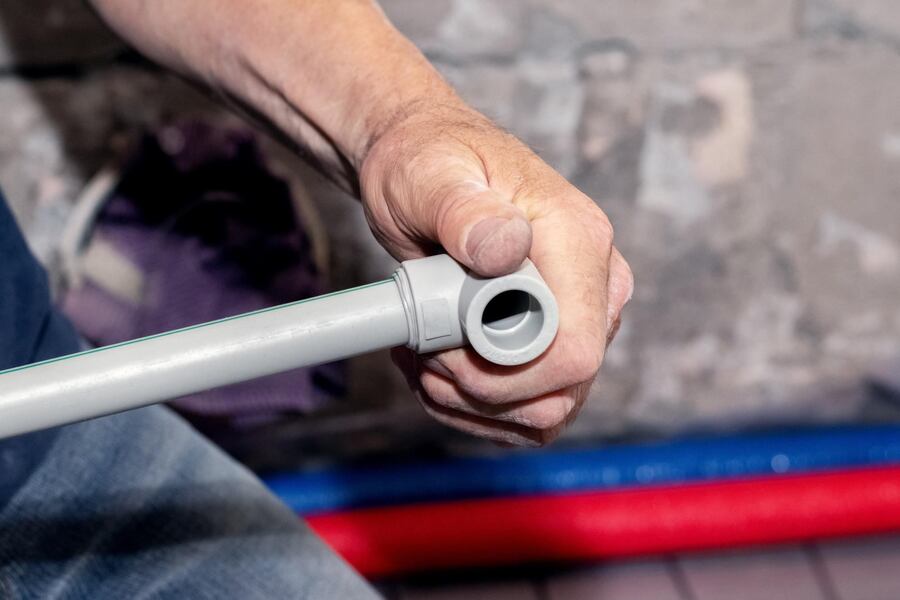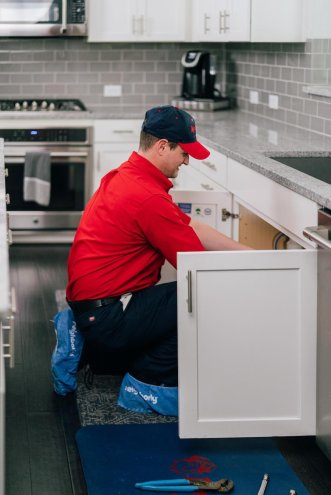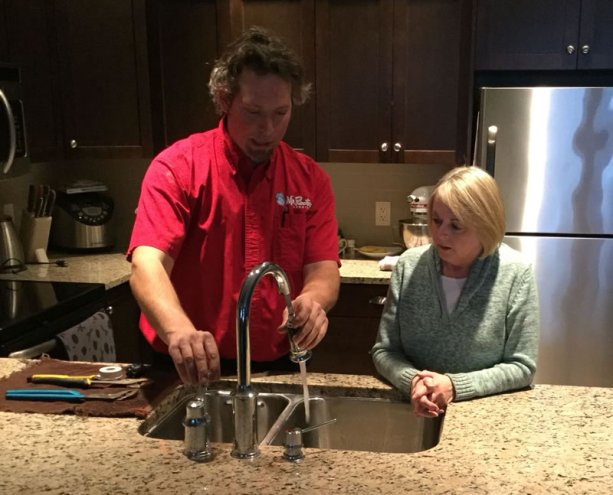Call This Saturday to get $50 Off
Call us Now to Get $50 OFF.
Ratings based on 1562 reviews
Local Plumbers, Local Reviews
Call This Saturday to get $50 Off
Call us Now to Get $50 OFF.
Ratings based on 1562 reviews
Local Plumbers, Local Reviews

Hidden behind walls and beneath floors, plumbing pipes work tirelessly to transport water, gas, and waste to where they need to go. Not all pipes are created equal though. There are different materials, shapes, and sizes made for varying jobs.
Whether you're tackling a plumbing project or just curious about what keeps your home running, it pays to know about the various types of plumbing pipes and their specific uses. We hope this brief article brought to you by the plumbing service professionals at Mr. Rooter Plumbing will help.
If you’d rather consult with a trained plumber, or have a qualified professional take care of the plumbing work, then call Mr. Rooter Plumbing to hire a uniformed member of our team.
Let’s start with the gold standard. Copper has been a favorite in plumbing for generations thanks to its unmatched durability and resistance to corrosion. Because copper pipes can handle both hot and cold water and even resist bacteria growth, they are particularly well-suited for water supply lines. The drawback is the high price tag on copper.
PVC pipes are the lightweight wonder go-to for many plumbing applications. Made from durable plastic, they’re lightweight, affordable, and incredibly easy to work with.
Their smooth inner surface reduces the risk of clogs and make them perfect for drain lines, vent systems, and wastewater pipes. On the flipside, they are not suitable for hot water lines as they can warp with heat.
Think of CPVC as PVC’s heat-resistant cousin. CPVC pipes are treated to withstand higher temperatures, and they are also resistant to chemical corrosion. They are certainly more durable than PVC pipes, but they are also more expensive.
PEX pipes have revolutionized modern plumbing with their versatility and easy installation. These flexible plastic pipes reduce the need for fittings because they can be bent around corners. While PEX pipes are highly-resistant to freezing and bursting, they are NOT UV-resistant.
Galvanized steel pipes were once the standard for water supply lines before modern plastic materials took over. These heavy-duty pipes are coated with a layer of zinc to prevent rust, but they’re still prone to corrosion and clogging over time.
The soundproof thick walls of cast iron pipes make them ideal for waste and sewer lines, especially in multi-story buildings where noise reduction is important. However, their weight and susceptibility to rust have made them less and less popular in residential plumbing.
While they’re not as common as other materials due to their higher cost, stainless steel pipes are ideal for areas prone to corrosion or extreme conditions.
If you’re considering a pipe replacement in your home or business, then you’re probably overwhelmed with all of the options. Selecting the right pipe depends on the specific needs of your plumbing system, and the dependable plumbers at Mr. Rooter are happy to help you make that choice.
When you schedule repiping with Mr. Rooter Plumbing, we guide you through your options and help you choose the best solution for your home or business. Call or message us today to get started.

Homeowners often feel tempted to perform quick, temporary fixes when a kitchen plumbing problem emerges. A loose faucet, a slow-draining sink, or a…
Read More
A kitchen can look spotless on the surface and still feel off, as if something unpleasant lingers no matter how often the counters…
Read More
Plumbing lines play a crucial role in the functionality of residential and commercial properties. Unfortunately, most people rarely think about their plumbing and…
Read More
Water heaters are among the hardest-working appliances in any home, supplying hot water for bathing, cleaning, and daily routines. Yet many homeowners overlook…
Read More